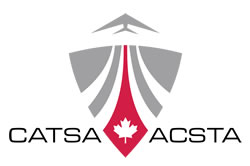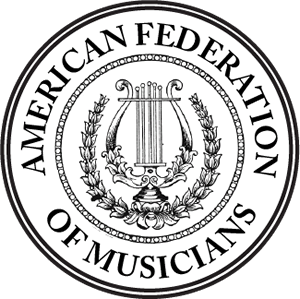Coronavirus Information for TMA149 Members – August 20 and 21, 2020
To our Members,
Canada Emergency Response Benefit Extension
The Government of Canada has announced that eligibility for the Canada Emergency Response Benefit (CERB) will be extended from maximum 24 weeks of support to maximum 28 weeks of support. Our understanding is that the extension is made possible by regulation versus parliamentary approval, and therefore the extension can happen without a sitting parliament. The extension will allow those who have received support in all six CERB periods thus far to also receive support in Period 7 (August 30 – September 26) if they meet the other existing eligibility requirements. As you will see in the announcement, the Government’s plan is to propose and pass new benefits, deemed “Recovery” benefits, instead of further extending the CERB beyond Period 7.
Three New Recovery Benefits that Require Parliamentary Approval
In the same announcement the Government of Canada shared three planned Recovery benefits, that will require matching legislation to be tabled, debated and approved in Parliament, prior to taking effect.
- The Canada Recovery Benefit (CRB) will provide $400 per week for up to 26 weeks, to workers who are self-employed or are not eligible for EI and who still require income support and who are available and looking for work. This benefit will support Canadians whose income has dropped or not returned due to COVID-19. The benefit will allow Canadians to earn more income while on claim as well as include links to Job Bank, Canada’s national employment service, with career planning tools for those seeking employment. In addition, the government will be working with provinces and territories to share information to ensure that Canadians have access to tools and training opportunities to successfully return to the workforce.
- The Canada Recovery Sickness Benefit (CRSB) will provide $500 per week for up to two weeks, for workers who are sick or must self-isolate for reasons related to COVID-19.
- The Canada Recovery Caregiving Benefit (CRCB) will provide $500 per week for up to 26 weeks per household, for eligible Canadians unable to work because they must care for:
- a child under age 12 due to the closures of schools or daycares because of COVID-19.
- a family member with a disability or a dependent because their day program or care facility is closed due to COVID-19.
- a child, a family member with a disability, or a dependent who is not attending school, daycare, or other care facilities under the advice of a medical professional due to being at high-risk if they contract COVID-19.
These benefits do not meet all of our Federation’s goals in recovery, but they go along way in addressing our main goals. If you are still in communication with your MP it would be helpful to express your opinion of the newly announced benefits during your next point of communication.
Federal Advocacy for Financial Support
These are the highlights of Our Federation’s Written Submission for Federal Pre-Budget Consultations
- Recommendation 1 (CERB): That the government extend the CERB (Canada Emergency Response Benefit) until at least March 31, 2021, but preferably until all crowd prohibitions have been lifted and government allows live performance venues to reopen.
OR: That the government extend the CERB (as above) and restrict the extension to entertainment workers.
AND: That the government extend the CERB (under either of the above scenarios), and increase the $1,000 monthly non-penalized earnings, with a gradual claw-back of benefits, rather than termination of the benefit if the maximum earnings are exceeded. - Recommendation 2 (UBI): That the government implement a Universal Basic Income.
- Recommendation 3 (EI Expansion): That the government expand the Employment Insurance (EI) program to fully include the self-employed, both as contributors and recipients.
- Recommendation 4 (EI Extension): That the government extend EI Regular Benefits, on a temporary basis, past the maximum claim period by 4-week increments, until such time as government lifts all crowd prohibitions.
- Recommendation 5 (RRSPs): That the government allow Canadians with Registered Retirement Savings Plan (RRSP) accounts to make non-taxable, limited withdrawals and to repay these withdrawals over a defined period.
While Parliament is prorogued you can still contact your Federal Member of Parliament to discuss the above recommendations, or additional recommendations.
Provincial Advocacy for Financial Support
These are the highlights of the TMA149 Submission to the Provincial Standing Committee on Finance and Economic Affairs
- Introduce a Live Arts Labour Tax Credit and a Live Arts Labour Rebate
- Work with Major Financial Institutions and the Federal Government to Introduce a Live Arts Financing Program to complement the Live Arts Labour Tax Credit and a Live Arts Labour Rebate
- Research and consider incentivizes for Ontario Musician and Music Maker Participation in Screen-Based Productions that receive Ontario Cultural Media Tax Credits
- Introduce Government of Ontario Backed Guarantees to Established Multi-Employer Pension Plans
TMA149 is scheduled to appear before the Committee on Monday August 24, 2020 @ 5:00 PM.
Please consider contacting your Member of Provincial Parliament to discuss the above recommendations, or additional recommendations.
Canada Emergency Business Account
TMA149 did not highlight the Canada Emergency Business Account early in the pandemic, as it was not a match for the majority of our membership. Changes this summer make the loan program much more suited to many TMA149 members and we recommend you look into the program.
This $55 billion program provides interest-free loans of up to $40,000 to small businesses and not-for-profits.
Repaying the balance of the loan on or before December 31, 2022 will result in loan forgiveness of 25 percent (up to $10,000).
As of June 26, 2020, businesses eligible for CEBA now include owner-operated small businesses that do not have a payroll, sole proprietors receiving business income directly, as well as family-owned corporations remunerating in the form of dividends rather than payroll.
Canada Emergency Wage Subsidy
For those receiving or interested in the Canada Emergency Wage Subsidy(CEWS), the extension of the CEWS was passed prior to Parliament being prorogued, and the rules loosened for periods 4 through 7. The key consideration for eligibility is whether members were employed or could be employed by an entity that had an existing CRA Payroll account, often referred to as a RP account, on March 15, 2020. After changes made to the program in July companies using a 3rd party payroll company as the employer of record may be eligible. Please see the bulletin from the accounting firm BDO Canada for more information.
Ontario Stage 3 Reopening Guidelines
Our entire local has entered Stage 3 of “A Framework for Reopening our Province” and we would like to highlight TMA149’s understanding of Stage 3 Rules and Regulations as they apply to live musical performance:
Here is a summary of our understanding of the key Stage 3 regulations for our members:
- Rehearsals, recording and scoring sessions, and streaming performances without an audience
- Musicians performing on acoustic, electric, electronic and computer-based instruments in a studio or location not open to the general public may do so without a set limit to the number of musicians and other workers (crew, technical workers, engineers, administration) allowed, but must observe other public safety measures (distancing, hand hygiene, contact tracing, etc.).
- This means that rehearsals, sound recording, recording for the screen, as well as being filmed playing or miming an instrument on a film / television set (aka ‘Sidelining’) and live performances for live or on demand distribution, without any audience in attendance, may occur under fewer limitations than if there is an audience involved.
- Performances at restaurants and bars
- Establishments must take appropriate measures to ensure physical distancing of at least two metres between patrons from different tables, unless separated by plexiglass or some other impermeable barrier. Otherwise, outside of the City of Toronto there is no specific limit on the number of patrons allowed in the establishment.
- Establishments in the City of Toronto have additional restrictions imposed by By-law 665-2020, that customers must stay seated except when a customer is entering or exiting the area, travelling to and from the premises’ washroom or paying. Also for the City of Toronto, no more than 100 persons are permitted to be inside the premises at any one time, but an exception may be applied for to increase the limit to 200 persons.
- Singing or music may be performed by a person or group at the restaurant or bar, with restrictions, including barriers between the stage and patrons if there are vocalists, wind or brass players performing, and physical distancing. Dancing may only be performed by someone working at the establishment with restrictions.
- Performances at religious services, rites or ceremonies, and wedding ceremonies or funeral services
- People gathering indoors for religious services, rites or ceremonies, and wedding ceremonies or funeral services, can continue to fill up to 30 percent of the capacity of the particular room, as introduced in Stage 2.
- Singing or music may be performed by a person or group at the religious service, rite or ceremony, with restrictions, including barriers between the performance location and patrons when vocalists, wind or brass players are performing, and physical distancing. Dancing may only be performed by someone working at the service, rite or ceremony, with restrictions.
- Performances elsewhere (at a planned or spontaneous event, indoors or outdoors, such as a community event or gathering, wedding reception, funeral reception, concert, live show, festival, conference, parade, sporting event, fundraiser, fair, festival, or open house).
- Indoor gathering limit is a maximum of 50 people;
- Outdoor gathering limit is a maximum of 100 people;
- People at their place of work, including performers and crews, do not count towards gathering limits;
- Performers must maintain physical distancing of two metres from every other person, except from other performers where necessary for purposes of the performance; and
- Plexiglass or some other impermeable barrier is required between the audience and the stage when the performance involves vocalists, brass or wind players.
TMA149 Request for Changes to Stage 3 Reopening Guidelines
TMA149 has sent a submission to the Ontario Jobs and Recover Committee that the committee consider the following regarding Stage 3 Rules and Regulations:
- Can an assured distance of 4 – 6 m between singers/performers of wind instruments and attendees provide the same protection as an impermeable barrier? If so, the updating of the guideline to allow for either an impermeable barrier or a 4 – 6 m distance would assist more producers and venues to put on live performing arts events safely.
- Can the maximum number of attendees gathering be increased to allow for gatherings at 30% of capacity, like religious services, or perhaps even greater, using additional restrictions? Such as:
- Mandatory masks for all attendees;
- Limited speaking opportunities and perhaps even speaking, singing, and shouting restrictions for audience members;
- Limited alcohol availability and perhaps even alcohol restrictions;
- Reasonable time limits applied to events, nevertheless no longer than the length of time it would take for the performances / works / songs / repertoire planned for; and/or
- The discouraging of intermissions or breaks in performance where they can be prevented.
Increasing gathering limits under the above conditions would allow for performances to become more economically viable than under current restrictions. TMA149 will be following up with similar and further requests of the City of Toronto in coming days.
Crowded Out – An Abacus Study commissioned by Music Canada on the Impact of Covid-19 on Musicians
Music Canada commissioned Abacus Data to study the impact of the pandemic on musicians’ lives, art, and, work. According to the national survey of over 700 professional musicians most respondents say that the number of bookings so far for 2021 is lower than usual, and many don’t expect a quick return to the stage – either because of government restrictions or personal discomfort performing while the risk of the virus exists.
TMA149 COVID-19 Health & Safety Guidelines
We want to acknowledge that our membership may be uncomfortable returning to their work as professional musicians due to health and safety concerns. No matter what your level of comfort every musician deserves a safe and healthy work environment, free of harassment. That is why we worked with provincial and municipal guidelines, and with guidelines developed with health professionals and musicians from Local 47 of our Federation in Burbank, California, to create a distinct set of TMA149 Covid-19 Health & Safety Guidelines. Please share and discuss these guidelines with your fellow musicians, the leaders and contractors on your engagements, and if you are comfortable, with your engagers.
The guidelines are divided into the following four areas:
- Facilities
- Social Distancing and safety
- Sheet music and other paper materials
- Illness-related issues
While many of these responsibilities remain with the venue and / or engager under the Occupational Health & Safety Act, including the supply of any special equipment or barriers, members have an obligation to cooperate and make workplaces as safe and healthy as possible.
Ontario Arts Council Launches Arts Response Initiative
The Ontario Arts Council (OAC) has opened applications to its Arts Response Initiative(ARI) to help Ontario artists and arts organizations respond to challenges posed by the pandemic. Funding of $4,000 for individual artists, $15,000 for collectives and organizations and $30,000 for partnerships is available for one-time specialized support. For more information visit the OAC Website’s ARI page.
City of Toronto Launches $2 million Partnership in Support of Black Music Professionals
Mayor John Tory announced a $2 million partnership between the City of Toronto, the Slaight Family Foundation and Advance, Canada’s Black Music Business Collective, to support the entry, retention and advancement of Black professionals in Toronto’s music industry.
Streamed Performances Part 1 – TMA149 and CFM/AFM Streaming Agreements – Tamizdat Resource – MPTF Support
We are aware that more than ever members wish to perform for live streams and on-demand streams to support their careers, to connect with their audience, and to create an income source at this difficult time. These streams may be self-produced or at the request of a live or media engager. The following are considerations before you produce a stream or agree to perform for a stream:
TMA149 and CFM/AFM Streaming Agreements
There are various agreements that have been promulgated or negotiated by our Federation for streaming to ensure musicians are paid fairly and have their rights protected when performing on a stream. We find at this time the two most useful agreements for independent streaming are:
- The TMA AFM Covid-19 Streaming Package (Login Required), which allows for live streaming with a percentage increase on a TMA149 negotiated or promulgated live agreement fee. On-demand streaming requires an additional fee. It is best suited for longer programs, such as whole concerts or long pieces (30 minutes +). This is the agreement that must be used if you would like MPTF support for a live-steamed concert that is free and open to the public.
- Limited Pressing with Visual Step Up (Login Required), which allows for live and on demand streaming up to a cap, then must be converted into a full SRLA session. Engagement fees are calculated based on the length of finished product (in segments of 15 minutes). This agreement tends to be better for shorter content (30 minutes or less).
Tamizdat Streaming Resource – The Legal Landscape of Live Streaming
Our partner in advocating for fair musician immigration (more on that next), Tamizdat, has released a guide to the legal landscape in copyright for streaming, as well as some platform and monetization options. While we do not support everything in the document we do believe it is a useful resource for members. In Part 2 we will be working with Rob DeVito from Society of Sound on a Made in Canada resource guide.
Music Performance Trust Fund Supports Streaming Concerts
The Music Performance Trust Fund, associated with our Federation and the major recording labels, is now accepting applications for streaming concerts that are free and open to the public. This is in addition to the regular support for live concerts that are free and open to the public. They will be supporting a small number of these events through a grant equal to 100% of scale fees under TMA149 / CFM / AFM agreements due to musicians. We are accepting applications through our local. Please email Jay Boehmer, TMA149 MPTF Coordinator, with your ideas for streamed or live performances that are worthy of support.
United States Citizenship & Immigration Service Ignores the Federation and its Partners – Increases P2 Visa Fees
Back in April our Federation joined with partners across the United States to call for the relaxation of visa rules and fees to support response to and recovery from the Covid-19 Pandemic. USCIS has ignored this call and has doubled down by increasing P2 Visa fees effective October 1. We know this could not come at a worse time and we have not given up advocating for more reasonable artist immigration to the United States. Stay tuned for next steps.
Currently and for all applications on or before September 29 the P2 Visa fee is $460 USD. Beginning October 1, 2020 the processing fee is $695 USD. The expected processing time is 60 days. More information may be found on the Federation’s Canadian website, under work permits.
Next Covid-19 Town Hall – Friday August 28, 2020 @ 10:00 AM
We are having our next Covid-19 Town Hall Friday August 28, 2020. Please bring questions for fellow members and TMA149 staff about next steps in response and recovery.
Suspension of Dues Penalties and Reinstatement Fees, Extension of Life Member Dues Deadline
In response to economic needs our membership has passed a motion to to suspend all late fees, penalties and reinstatement fees found in Articles 14 1(c), (2), (3), (4) and (5) of the TMA149 By-Laws. This means that if you fall behind on dues you will be able to bring your membership into good standing by simply paying for missing quarters. We are currently only able to make this offer until September 30, 2020 due to Federation restrictions, but we are in discussions to extend the offer. In addition, to provide relief for our longest-standing and most senior members, the Board of Directors has extended the deadline to pay for 2020 Life Membership from April 1, 2020 to December 31, 2020.
TMA149 Health Benefits
Further, although no rule changes were required, the Board of Directors wishes to clarify that all members who have been diagnosed with, or tested positive for, Covid-19 may apply for support to the TMA149 Health Benefit and Extended Health Benefit, as well as the Federation’s Lester Petrillo Memorial Fund for Disabled Musicians.
TMA149 and CFM Office
Our office is remaining physically closed for the time being and we are working from home. Although we are still accepting phone calls, mail and courier delivery, we ask that you access services by email whenever possible. Those working please do continue to send contracts, reports, dues and pension contributions by electronically, by mail or courier. Please note the Canadian Office of the Federation is open for electronic services and accepting P2 applications by mail for those planning a post-Covid tour.
Covid-19 Update Archive
All Covid-19 Updates and other Covid-19 resources may be found here:
https://tma149.ca/covid-19-archive/.
New Website, Member Login and Lost Work Form
We have launched our new website and you should have received an email back in June from “tma@bellnet.ca” with login details. Please check your junk mail folder if you cannot find the email. Once logged in you can update your instruments and other information for our directory and enter lost work due to Covid-19 in a form that will produce a form for your records. The lost work forms and information can be retrieved at a later time by logging in again. If you are having any trouble with login please contact Dennis Passley, Membership & Contracts Coordinator dpassley@tma149.ca.
Always feel free to reach out to myself or any of our office staff with specific requests including regular business inquiries.
In Solidarity,

Michael Murray, Executive Director






